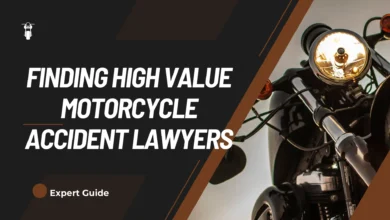
Liability insurance offers protection against third-party claims for property damage and/or personal injury. Investopedia explains that liability coverage is often required for auto insurance policies, product manufacturers and people who practice law or medicine.
The most common liability insurance is car insurance. But what does it cover? Read on to find out.
Bodily Injury
Bodily injury liability coverage pays for other people’s medical expenses in an accident that you are found at fault for. This can include hospital fees, emergency care, physical therapy, and follow-up visits to specialists. In some cases, it may also cover lost income from time off work, pain and suffering, and funeral costs.
Most states require a minimum level of bodily injury liability, but you can select a limit higher than the legal minimum. Your liability limits are usually expressed as 2 numbers: the maximum amount your insurance will pay per person and the maximum it will pay in total per accident.
Property damage liability covers the cost of repairing or replacing other people’s cars and their personal belongings – including things like garage doors and fences – in an accident you cause. It may also help pay for their lost income and legal fees if they sue. The most common property damage limit is $25,000. This is typically paired with a bodily injury limit, such as 25/50/25 or 25/100/50.
Property Damage
Property damage liability covers any harm you cause to the property of others, such as their car in an accident that’s your fault. This type of claim is typically covered up to your policy’s property damage coverage limit. Note that it doesn’t help cover the cost of repairs to your own vehicle, which is what collision coverage handles.
Most states require car owners to carry at least some level of property damage liability insurance. It’s also common for business owners to purchase general liability insurance, which protects against claims involving bodily injury or property damage. Directors and officers liability (D&O) insurance, meanwhile, can protect large company leaders against lawsuits related to bad decisions. It can cover things like erroneous investment decisions, releasing confidential information, conflicts of interest, and gross negligence. This type of insurance is usually sold separately from other types of liability insurance. Generally, it pays third parties rather than the insured party. Intentional damage and contractual liability aren’t covered by this type of policy.
Medical Payments
Bodily injury liability and medical payments are two different types of coverage that may be included in a home insurance policy. Bodily injury covers injuries you become legally responsible for, while medical payments cover reasonable medical expenses for people other than you or family members on the policy.
Medical payments also can help with deductibles and copays on health insurance policies, which can be pricey. In addition, medical payments may cover diagnostic tests like X-rays and specific treatments such as physical therapy.
Medical payments usually has lower maximum policy limits than bodily injury coverage, but it can be helpful in deterring injured parties from pursuing expensive legal action against you. It’s similar to personal injury protection (PIP) in car insurance, which typically applies to the driver and all passengers, regardless of who is at fault for an accident. Talking to a licensed agent is an excellent way to determine whether or not medical payments is right for you.
Additional Coverage
Most states require you to have a minimum amount of liability car insurance to drive legally. However, consider your net worth and whether you want to protect your personal assets with more coverage than the minimums.
You can purchase an umbrella policy that goes above and beyond the dollar limits of your auto, home or boat insurance policies to protect you against catastrophic losses. This type of coverage is typically available for a relatively low cost.
Business owners can also get general liability insurance, which protects a business from claims arising from bodily injury and property damage. It is often combined with business owners policy (BOP) coverage to provide a single policy that can cover most of a company’s commercial exposures.
Liability insurance doesn’t usually cover your vehicle repair costs, which is why many people purchase collision protection. It also doesn’t cover medical expenses for you or any passengers in your vehicle, which is why most drivers choose to add personal injury protection and/or medical payments coverage to their car insurance.




